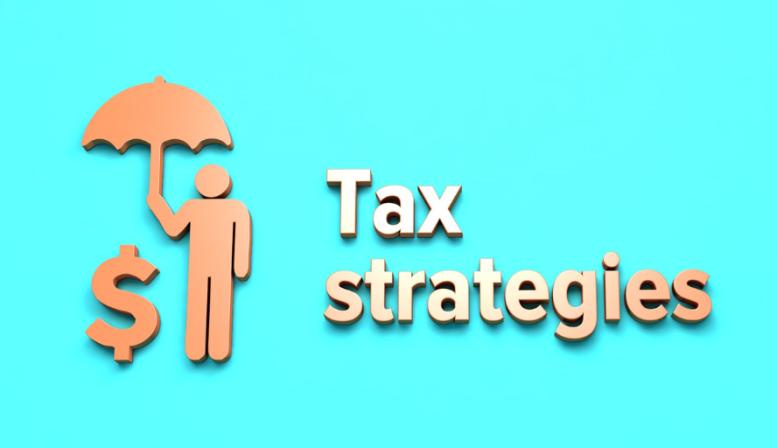Smart Tax Strategies for Professional Speakers

Navigating the world of taxes can be challenging for professional speakers who manage their own business finances. From understanding different income streams to maximizing deductions, the complexity of tax obligations can significantly impact a business’s profitability and legal compliance.
This article provides an in-depth guide to help professional speakers effectively manage their taxes, ensuring they remain financially healthy and legally compliant.
Understanding your tax obligations
Professional speakers often have multiple sources of income, including speaking fees, royalties from published materials, and payments for online courses or webinars.
Each income type can have different tax implications. For example, royalties are generally taxed as ordinary income. It's important to report this income accurately to avoid potential audits and penalties.
Common deductions for professional speakers
Deducting business expenses is essential to reducing taxable income. There are several common deductions that professional speakers can take advantage of:
-
Travel expenses. Airfare, hotels, and ground transportation related to speaking engagements are generally deductible.
-
Marketing and advertising. Costs associated with website maintenance, advertising, and promotional materials can also be deducted.
-
Professional development. Fees for courses, seminars, and conferences that enhance your speaking skills or industry knowledge are deductible.
-
Home office. If you use a portion of your home exclusively for business, you may be able to claim a deduction for related expenses such as utilities and rent based on the percentage of your home used for business.
Keeping detailed records of all expenses is also critical. It streamlines the tax filing process and ensures that you’re taking full advantage of the deductions available to you. This practice can significantly reduce your tax liability and support your business’s financial health.
Navigate through the contracts and their tax implications
Terms and conditions of payment
Understanding the payment terms in speaking contracts is critical to managing your cash flow and tax obligations. Speaking contracts should clearly state the amount of the fee, the payment schedule, and the payment terms.
It's not uncommon for contracts to require the speaker to submit an invoice after the event. However, beware of clauses that make payment contingent on the client's satisfaction or acceptance of the work as this can delay your compensation.
An important consideration is how these payment terms affect your tax reporting. For example, if payment is received in a different tax year than the one in which the services were performed, this could affect your annual income reporting.
In addition, if the client is to reimburse you for expenses, it's a good idea to negotiate terms where major expenses such as travel are reimbursed in advance. This ensures that you are not out of pocket for long periods, which could affect your financial planning and tax liabilities.
Intellectual property rights
For professional speakers, the content created for presentations, including PowerPoint slides and handouts, is often a significant part of their intellectual property.
Contracts should clearly state who owns the copyright to these materials. Ideally, speakers should retain all rights to their content, granting event organizers a non-exclusive, perpetual license to use the material for specific purposes, such as conference materials or promotional items.
However, many speaker contracts may contain clauses that require the speaker to assign his or her copyright to the event organizer. It is important to resist such clauses as they can limit your ability to use your own content in the future and potentially limit the revenue from future uses of the material.
Always negotiate terms that allow you to retain control of your intellectual property. This secures future revenue streams and protects against unauthorized use that could damage your brand or market reputation.
Advanced tax planning strategies
Incorporation and its benefits
One effective tax strategy for professional speakers is to incorporate their business. Determining the best entity type to set up offers several tax advantages, whether by forming a Limited Liability Company (LLC) or an S corporation.
For LLCs, the primary benefit is pass-through taxation, where income is taxed only once on the owner's personal tax return, avoiding the double taxation often associated with corporations.
S corporations allow owners to be treated as employees for tax purposes, offering similar pass-through taxation benefits but with the benefit of potentially saving on self-employment taxes.
Incorporation can also provide credibility for customers and suppliers, asset protection from personal liability in the event of a lawsuit, and easier access to capital through more structured financing options such as small business loans or lines of credit.
Multi-state tax compliance
For professional speakers who travel across state lines to deliver presentations, understanding multi-state tax compliance is critical. This includes navigating the concept of "nexus," which refers to having a sufficient physical presence in a state to trigger tax obligations to that state.
Activities that create nexus may include conducting seminars, workshops, or sustained business operations within the state. Each state has its own rules for defining nexus, which can complicate tax filings for speakers engaged in interstate business.
For example, conducting a series of workshops in one state could subject you to that state's income tax requirements. The solution is to thoroughly document all out-of-state activities and consult a tax professional who understands multi-state tax laws to ensure compliance and optimize tax strategies.
Tax benefits and certifications
Minority- and women-owned business enterprise certifications
Becoming certified as a minority- or women-owned business can open up many opportunities for professional speakers, including access to exclusive contracts and tax benefits.
Such certifications can make your business eligible for government and corporate diversity programs. This can lead to more speaking opportunities at conferences, workshops, and events that prioritize or require diverse suppliers.
To qualify, business owners must demonstrate ownership and control of the business. While rigorous, the certification process provides benefits. These include access to specialized training, networking events, and potential tax incentives offered by some states to encourage diversity in business ownership.
Federal and state tax credits
Professional speakers may also be eligible for various federal and state tax credits that can reduce the amount of taxes owed. For example, small businesses can take advantage of the Work Opportunity Tax Credit (WOTC) for hiring individuals from certain targeted groups that have historically faced significant barriers to employment.
In addition, investing in new equipment for your business may qualify you for the Section 179 deduction, which allows you to deduct the full purchase price of qualifying equipment.
What's more, if you implement environmentally friendly practices or technologies in your business operations, you may be eligible for green energy tax credits. These credits reduce your tax liability and contribute to a more sustainable business model, which can be an attractive selling point for your services.
Bottom line
Understanding taxes as a professional speaker involves more than just keeping up with annual tax changes; it requires a strategic approach to financial management, knowing the nuances of contracts, leveraging business structures, and taking advantage of all applicable tax credits and deductions.
By taking a proactive approach to tax planning and seeking expert advice, you can ensure that your business remains financially sound while minimizing tax liabilities.




